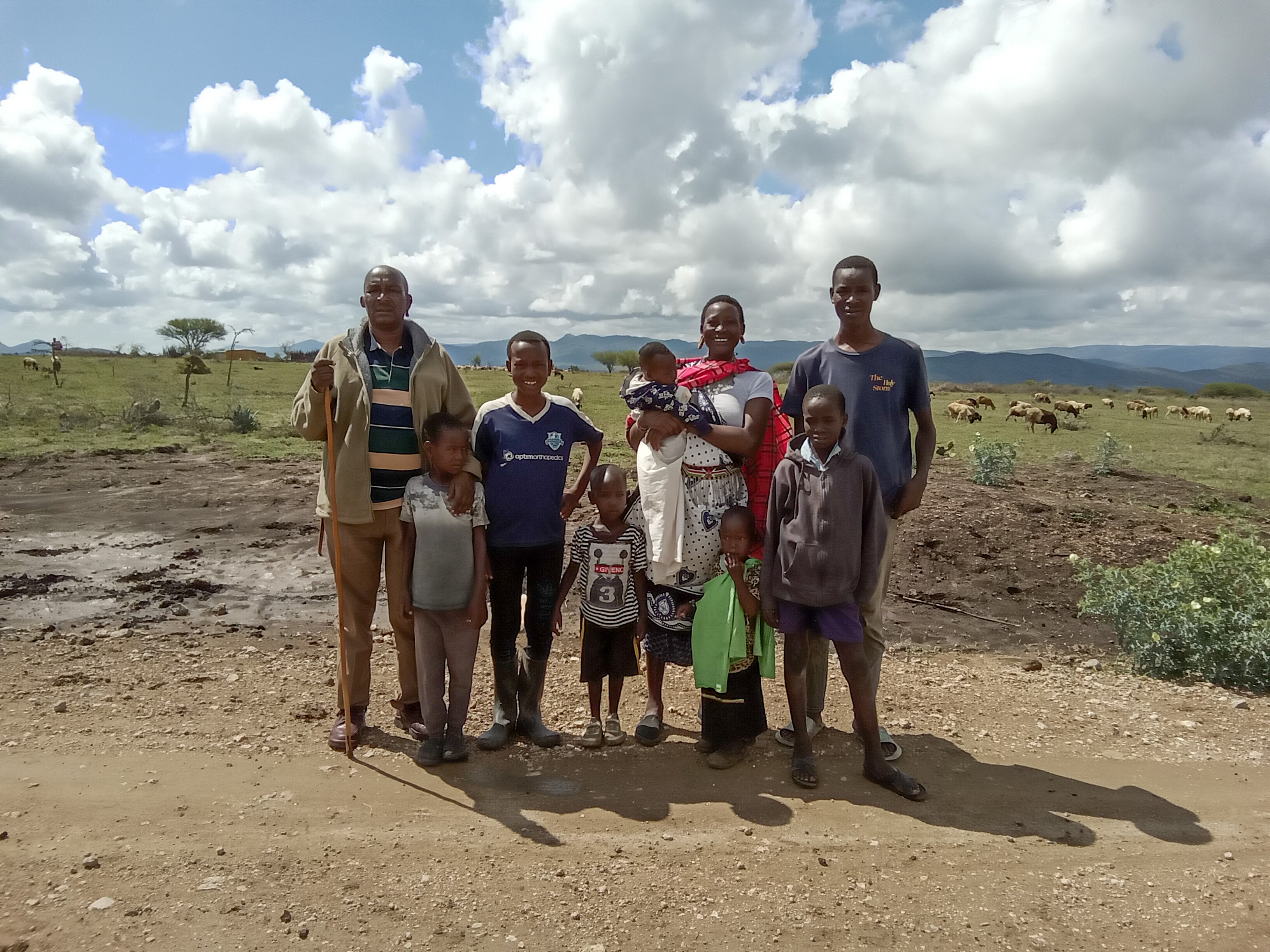 Since 2023
Since 2023
This is the Koikai family. The father and mother are both living and working together to raise their children.
They live in the village of Olosirwa. Olosirwa (also spelled Olosirua) is a small collection of traditional mud homes scattered throughout the dry, rural countryside of southwest Kenya. There is a primary school in the village, along with a few churches within walking distance. This remote community faces challenges with roads, electricity and access to clean water. However, there's been some recent development initiatives aimed at improving transportation, electricity access, and water supply.
Here is some information about the Koikai family’s living situation:
- Has any household member completed over 6 years of school? Yes
- Are the children either too young for school or attending school up to the age at which they should finish eighth grade? Yes
- Has the family experienced any child mortality in the last five years? No
- Are any family members currently undernourished? Yes
- Does the family have access to electricity? Yes (1)
- Does the family have access to improved sanitation? No (2)
- Does the family have access to safe drinking water? No
- Is the home made of adequate housing materials? No (3)
- Does the family cook with safe cooking materials? No (4)
- Does the family own more than one useful asset or a car/truck? Yes (5)
Because of the above information, the Koikai family has a poverty index of 38.89%. The higher this percentage, the more severe the poverty they experience. This number is based on the Multidimensional Poverty Index developed by Oxford University (6).
Your partnership can help the Koikai family have access to better education. It can help them gain food and water security and give them the tools they need to have a stronger livelihood. It will give them access to social workers to help break the emotional bonds of poverty. Above all, your partnership will give the family the opportunity to be discipled by local ministries.
Partner with the Koikai family today to help end extreme poverty in rural Africa.
- Electricity access can include a solar light that charges. In rural Kenya, this is often the case.
- Improved sanitation is a flush toilet, latrine, ventilated improved pit, or composting toilet, provided they are not shared.
- Inadequate housing materials would involve the floor, roof, or walls being made of dirt, sand, or dung.
- Unsafe cooking materials would be wood, charcoal, or other forms of solid fuel.
- Useful family assets include radios, TVs, telephones, bikes, motorcycles, refrigerators, computers, and animal carts.
- For more information on the MPI, visit https://ophi.org.uk/what-global-mpi











